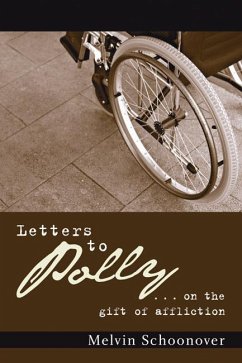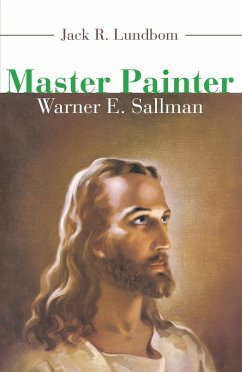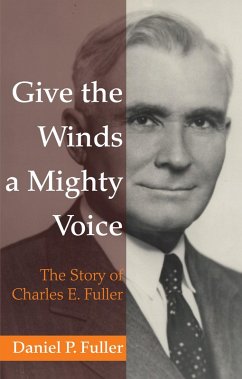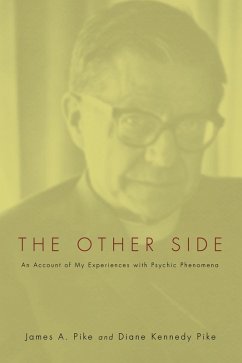In the five long letters which follow, her father--himself afflicted with the same disease--attempts to describe for his daughter the freedom he has found. It is a liberation, he explains, made possible not simply in spite of his illness, but to a significant extent just because of it. It is a liberation which is, in fact, the gift of affliction. Melvin Schoonover isn't trying to kid anyone, least of all his daughter. He knows first-hand the emotional and physical agony brought about by his handicap; confined to a wheelchair, he has experienced the limitations on his movements, the appalling insensitivity of which some of us are capable when exposed to a 'cripple.' And he tells her about those experiences, and the effect they had on his childhood, his education, his travel, his career. He knows, better than most of us, how bad it can be. Yet he is able to write In many ways I consider myself to be among the most privileged of men . . . . And he adds: That is why I have decided to write you these letters . . . to share some things with you that the end of the struggle is not despair, but hope and joy. It is hope and joy that emerge most forcefully in these 'Letters to Polly.' The bitterness is there, too, of course; and the anger , the impatience, the frustration. Schoonover is too honest to deny, or to attempt to disguise, the burdens of affliction. But neither his life nor his letters end on that note. They end, instead, in the joy and confidence he has found in Jesus of Nazareth. His final victory over evil and suffering and death, he tells Polly, gives me hope that we--and all men--can and shall reach the kingdom. There the physical burdens will be laid aside, and the walls of separation between human beings shall be torn down, and we shall all be free to love and live as we were always intended to do.
Dieser Download kann aus rechtlichen Gründen nur mit Rechnungsadresse in A, D ausgeliefert werden.









